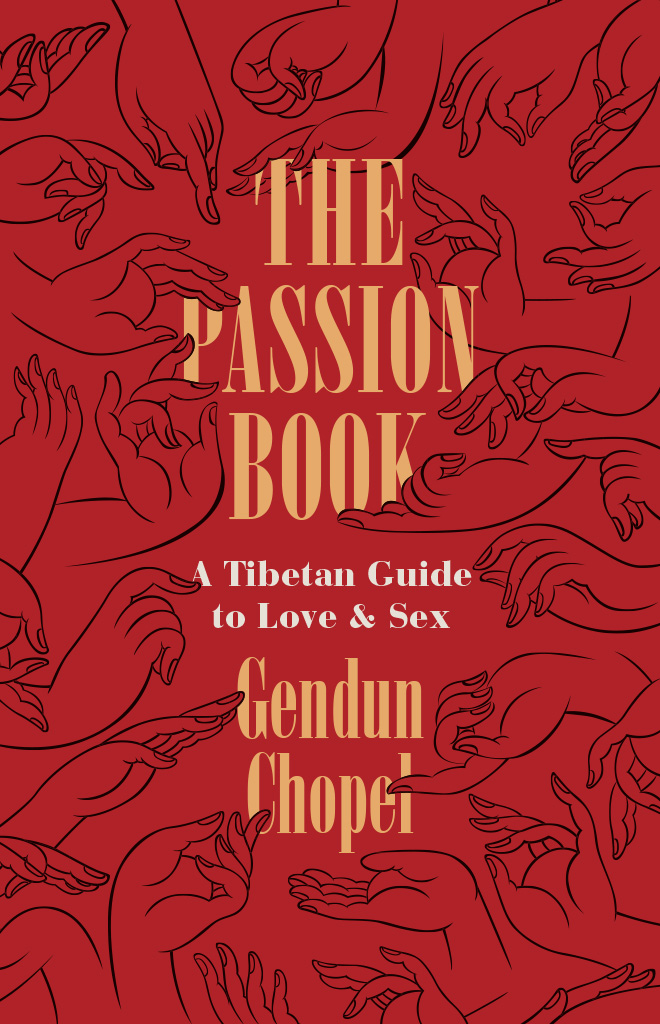
The Passion Book
BUDDHISM AND MODERNITY
A series edited by Donald S. Lopez Jr.
Recent Books in the Series
A Storied Sage (2016), by Micah L. Auerback
Strange Tales of an Oriental Idol (2016), by Donald S. Lopez Jr.
Rescued from the Nation (2015), by Steven Kemper
Grains of Gold (2013), by Gendun Chopel
The Birth of Insight (2013), by Erik Braun
Religious Bodies Politic (2013), by Anya Bernstein
The Passion Book
A Tibetan Guide to Love & Sex
Gendun Chopel
Translated and with an Afterword by Donald S. Lopez Jr. and Thupten Jinpa
THE UNIVERSITY OF CHICAGO PRESS CHICAGO AND LONDON
The University of Chicago Press, Chicago 60637
The University of Chicago Press, Ltd., London
2018 by The University of Chicago
All rights reserved. No part of this book may be used or reproduced in any manner whatsoever without written permission, except in the case of brief quotations in critical articles and reviews. For more information, contact the University of Chicago Press, 1427 East 60th Street, Chicago, IL 60637.
Published 2018
Printed in the United States of America
27 26 25 24 23 22 21 20 19 18 1 2 3 4 5
ISBN-13: 978-0-226-52003-2 (cloth)
ISBN-13: 978-0-226-52017-9 (paper)
ISBN-13: 978-0-226-52020-9 (e-book)
DOI: https://doi.org/10.7208/chicago/9780226520209.001.0001
The University of Chicago Press gratefully acknowledges the generous support of the University of Michigan toward the publication of this book.
Library of Congress Cataloging-in-Publication Data
Names: Dge-dun-chos-phel, A-mdo, 19031951, author. | Lopez, Donald S., Jr., 1952 translator, writer of postface. | Thupten Jinpa, translator, writer of postface.
Title: The passion book : a Tibetan guide to love & sex / Gendun Chopel ; translated and with an afterword by Donald S. Lopez Jr. and Thupten Jinpa.
Other titles: Dod pai bstan bcos. English. 2018 | Buddhism and modernity.
Description: Chicago ; London : The University of Chicago Press, 2018. |
Series: Buddhism and modernity | Includes bibliographical references
Identifiers: LCCN 2017024328 | ISBN 9780226520032 (cloth : alk. paper) | ISBN 9780226520179 (pbk. : alk. paper) | ISBN 9780226520209 (e-book)
Subjects: LCSH: Sex instructionReligious aspectsBuddhismPoetry. | SexReligious aspectsBuddhismPoetry. | LCGFT: Poetry.
Classification: LCC PL3748.D4 D613 2018 | DDC 306.7dc23
LC record available at https://lccn.loc.gov/2017024328
 This paper meets the requirements of ANSI / NISO Z39.48-1992 (Permanence of Paper).
This paper meets the requirements of ANSI / NISO Z39.48-1992 (Permanence of Paper).
Contents
A Treatise on Passion is the most famous, and infamous, work of Gendun Chopel, the most important, and controversial, Tibetan writer of the twentieth century. He was born in the far northeast region of the Tibetan cultural domain in 1903, the year that British forces under the command of Colonel Francis Younghusband invaded his homeland. He died in 1951, as troops of the Peoples Liberation Army marched through the streets of Lhasa. Over the course of his short life, he was identified as an incarnate lama, ordained as a Buddhist monk, excelled on the debating courtyards of Tibets great monasteries, and left Tibet for India, not returning again for twelve years. There, he gave up his monks vows, learned to paint in a style unknown in Tibet, learned Sanskrit, and wrote some of the greatest Tibetan poetry of the twentieth century. Returning to his native land in 1945, he was arrested on trumped-up charges of treason and thrown into prison. Emerging a broken man, he lived long enough to compose a controversial treatise on Buddhist philosophy, one that continues to provoke heated arguments to this day.
Among all of his writingsthe many that survive and the many that are lostnone is more famous than his Treatise on Passion. His motivations for writing the text were many. The first was largely academic. Like so many Tibetan intellectuals, he had a fascination with classical Indian literary culture. Upon his arrival in India, he found a genre of classical literature that was not well known in Tibet. This is kmastra, works on erotica, the most famous (but certainly not the only) example of which is the Kma Stra. Gendun Chopel studied many works of Sanskrit erotica as he prepared to write his own text in Tibetan. Readers of the Kma Stra are often surprised (and disappointed) to learn that only a few of its chapters deal with sex. It is less a sex manual and more a guidebook for the proper conduct of the cultured Indian gentleman in his dealings with women. Gendun Chopel, who was both an admirer and a critic of classical Indian culture, dispenses with most of this. His interest is sexual pleasure.
This is a pleasure that he knew not from books but from his own experience. And thus his second motivation in composing his Treatise on Passion was to convey that experience. In poem after poem, on page after page, we find the exuberance of someone discovering the joys of sex, made all the more intense because they had been forbidden to him for so long. He had taken vows of celibacy when he was in his early teens and may have renounced his monks vows as late as age thirty-one, just four years before completing this work, where he describes in ecstatic and graphic detail the wonders he had discovered. These are among the most powerful passages in the work and are the places where we hear Gendun Chopels voice most clearly, a voice with tints of irony, self-deprecating wit, and a love of women, not merely as sources of male pleasure, but as full partners in the play of passion.
However, Gendun Chopel had yet another motivation. As an incarnate lama of the ancient sect of Tibetan Buddhism, he was deeply versed in the tantras, those texts that set forth secret techniques for achieving enlightenment, techniques that result in deep states of bodily bliss, bliss that becomes Buddhahood. In some tantric systems, in order to achieve enlightenment, the subtle mind of bliss must penetrate the profound nature of reality. Gendun Chopel was a learned tantric exegete, having studied with great masters in Tibet. Here, in A Treatise on Passion, he seeks to understand the meaning of bliss and how it relates to the pleasures of lovemaking.
Gendun Chopel arrived in India during the height of the independence movement, as Hindu and Muslim patriots sought to throw off the colonial chains of British bondage. He was deeply sympathetic to this movement, taking many of its principles back to Tibet with him. Yet Gendun Chopel would become an apostle of a different freedom: sexual freedom. He condemned the hypocrisy of society and church, instead portraying sexual pleasure as a force of nature and a human right for all. The kmastra literature of India was intended for the socially elite; the tantric literature of Tibet was intended for the spiritually advanced. And whether intended for the cultured gentleman or the tantric yogin, the instructions were provided for men. In his Treatise on Passion, Gendun Chopel seeks to wrest the erotic from the elite and give it to the people, of all genders. These are among the most powerful passages in the work and are the places where we again recognize Gendun Chopels voice. As you will read in the pages that follow:
74. Not spitefully binding or beating someone,
Not cruelly stabbing someone with a spear;
Passion is offered to a passionate human.
Next page
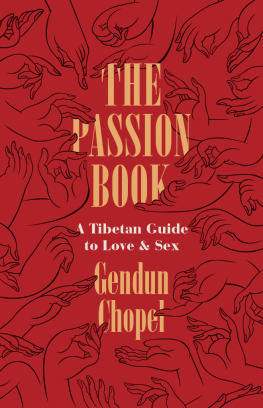
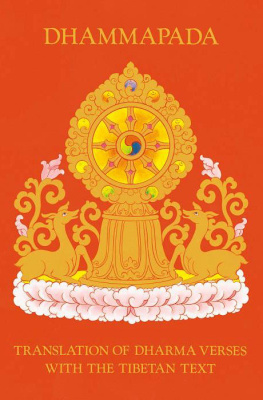


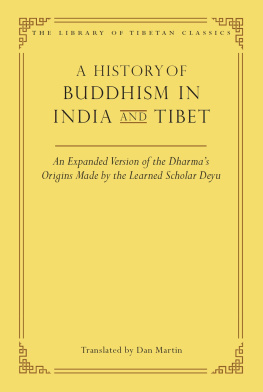
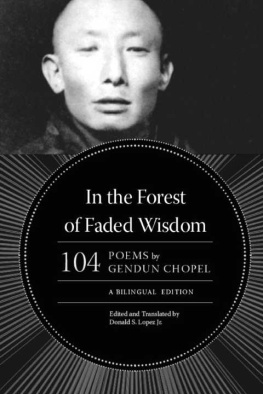
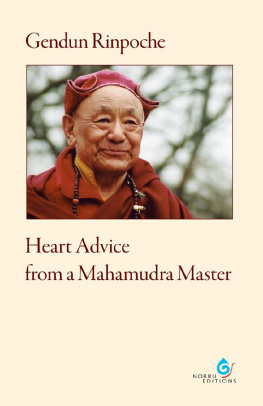

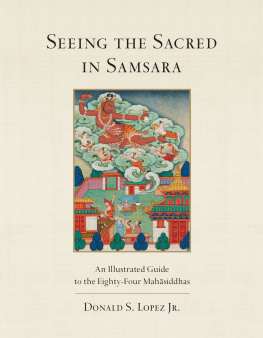

 This paper meets the requirements of ANSI / NISO Z39.48-1992 (Permanence of Paper).
This paper meets the requirements of ANSI / NISO Z39.48-1992 (Permanence of Paper).